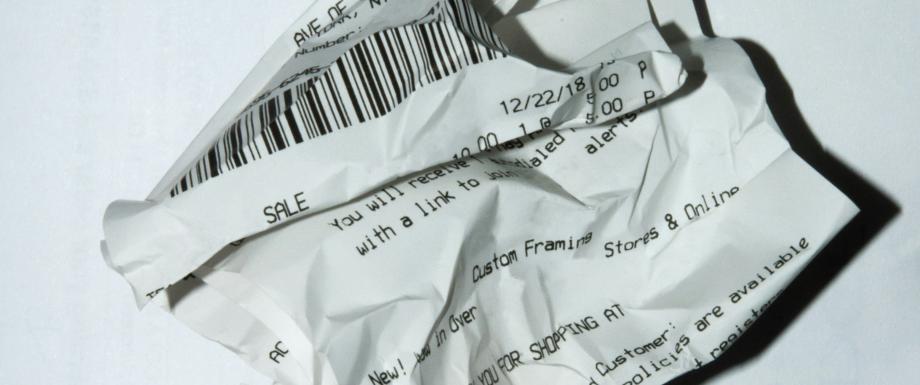
The Chamber Supports the Plan to Eliminate the Obligation to Issue Paper Receipts
The Ministry of Economic Affairs and Communications has drafted a bill to amend the Consumer Protection Act, which aims to eliminate the obligation for merchants to automatically provide paper receipts to consumers and to allow merchants to stop sending duplicate paper invoices by mail on a monthly basis. The Chamber supports these proposed changes.
Merchants Will No Longer Be Required to Automatically Issue Paper Receipts
Under the current Consumer Protection Act, merchants are required to provide a written receipt or a receipt in a format that can be reproduced in writing, with the consumer’s consent, for purchases over €20. For purchases under €20, the receipt is provided only upon the consumer's request.
The Chamber supports the proposed change that would remove the requirement for merchants to automatically issue paper receipts to consumers. Going forward, merchants would only be required to provide a paper receipt if the consumer pays in cash and does not use a loyalty card or uses a loyalty card that does not allow purchase history to be stored for two years after the transaction. The Chamber views this as a positive change, as it reduces costs and burdens for businesses and also has a positive environmental impact.
Merchants Can Make Invoices Available Through a Single Channel
According to the bill, the law will be amended so that merchants are required to make invoices available to consumers for free through one channel. Consumers can choose to receive the invoice by mail, email, or as a text message sent to their mobile phone number. If the consumer wants to receive the invoice both electronically and by mail, the merchant has the right to charge the consumer for postage costs. The Chamber supports this proposed change.
Merchants Should Be Allowed to Stop Sending Duplicate Paper Invoices for Ongoing Service Contracts
The bill omits a provision that would allow merchants to stop sending paper invoices to consumers with ongoing service contracts if the consumer has opted for an e-invoice in a self-service portal, bank, or similar environment. An ongoing service contract refers to an agreement for the provision of continuous or recurring services, such as a leasing contract or a newspaper subscription. In its feedback to the Ministry, the Chamber expressed that there is no sufficient justification for omitting this provision from the bill. The Chamber believes that such a change is necessary as it would help reduce costs associated with sending paper invoices and have a positive environmental impact.
The changes are expected to take effect on July 1, 2025.


